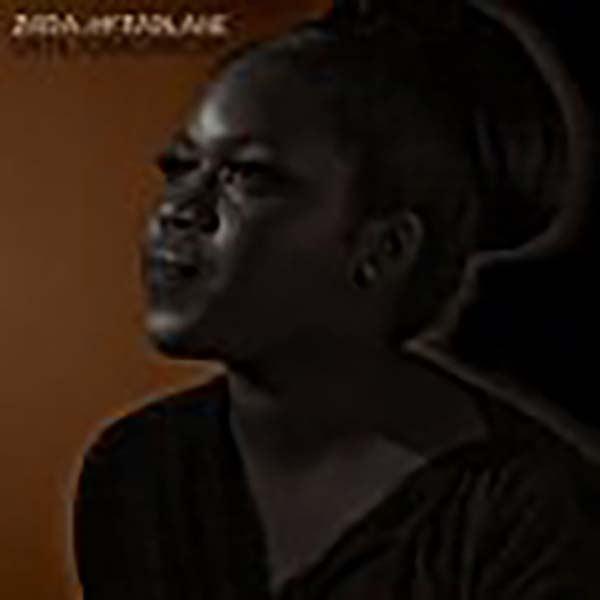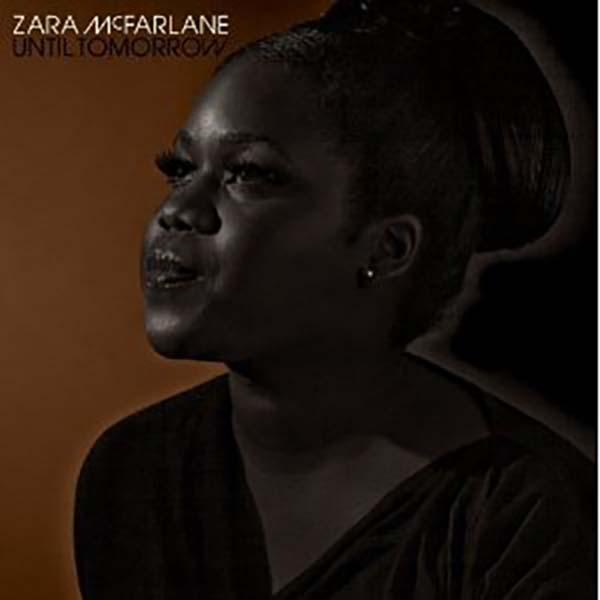

by Ian Mann
October 20, 2011
/ ALBUM
An assured and pleasingly mature début. It seems likely that Zara McFarlane is about to become an increasingly significant figure on the UK jazz scene.
Zara McFarlane
“Until Tomorrow”
(Brownswood Recordings BWOOD070P)
The young London based singer Zara McFarlane is the latest signing to Gilles Peterson’s Brownswood recording label. Now aged 28 McFarlane has appeared with an impressive roster of artists from both the jazz and popular music fields. Her collaborations include work with jazz artists Denys Baptiste, Orphy Robinson, Soweto Kinch, Hugh Masekela and Alex Wilson. She also worked with Tomorrow’s Warriors and was the featured vocalist on the Jazz Jamaica All Stars 2006 Motown themed album “Motor City Roots”.
The press release cites the great contemporary jazz singers Cassandra Wilson and Dianne Reeves as influences on McFarlane’s style alongside more soul orientated performers such as Jill Scott and Erykah Badou. Certainly the music on “Until Tomorrow” references both genres but keeps the emphasis firmly on jazz with McFarlane being assisted by an excellent band that includes pianist Peter Edwards, bassist Nick Walsh, drummer Andy Chapman and the saxophonists Binker Goldings, Camilla George and Zem Adu.
My review copy comes with the minimum of information but it would seem that most of the songs are self penned with Peter Edwards helping out with the arrangements. Opener “More Than Mine” unfolds slowly and insistently from Edwards’ piano opening with McFarlane’s vocal addressing a broken relationship and her love rival. It’s a performance that blends vulnerability and assertiveness in equal measure and also includes a terrific horn arrangement with the saxophonists carousing bluesily in an extended central instrumental section.
“Captured (part 3)” is a more orthodox jazz ballad played by the core quartet with bitter sweet lyrics and some masterful piano work from the excellent Edwards. Walsh and Chapman are a sympathetic rhythm section with the drummer exhibiting a keen eye for detail.
The wordy “Mama Done” demonstrates the flexibility of McFarlane’s voice and finds her displaying a real talent for jazz phrasing. Edwards, Walsh and Chapman offer characteristically flexible and empathic support.
The title track is a delicate ballad that incorporates more beautiful piano from Edwards and rich, soulful arco bass from Walsh. McFarlane gives a beautifully pure and wistful vocal performance.
“Blossom Tree” adds a touch of soul to the proceedings With McFarlane coming on slinky and seductive above Walsh and Chapman’s subtle but persistent grooves. There’s also a burst of smoky saxophone that adds greatly to the sensual atmosphere of the piece.
Other sources suggest that “Feed The Spirit (The Children & The Warlock)” is a tune dating back to 1975 written by former Roberta Flack collaborator Harry Whittaker and with McFarlane adding contemporary “vocalese” lyrics. It’s arguably the centre piece of the album building from a hushed semi spoken intro to full on magnificence including a powerful saxophone solo. The lyrics are concerned with spiritual matters with the line “Feed the spirit, feed the soul” almost becoming a mantra. It’s an ambitious piece that clearly shows its seventies roots but is none the worse for that.
By contrast a second Whittaker piece, “Waking Sleep (Thoughts)” is almost minimal with McFarlane and her accompanists conjuring up an appropriately dream like atmosphere with Walsh’s delicately plucked solo the instrumental highlight.
The tunes “Chiaroscuro” and “Desire” were co-written with British house music producer Bopstar and initially appeared on record in a very different context. The former now embraces a suitably noirish, smoky after hours atmosphere topped by a blazing saxophone solo. “Desire”, a voice and piano duet, evokes the same kind of atmosphere but with a more explicitly sensual vocal and lyric.
The album is bookended by an alternate take on the opening “More Than Mine” with a men’s chorus supplementing McFarlane’s vocals. The male chorale adds little, the track is a pleasant bonus but neither radical nor essential.
“Until Tomorrow” is an assured and pleasingly mature début from a singer who possesses a pure tone and who has real feel for jazz melody and rhythm. Her original songs are sharply observed and very likely self referential, McFarlane is a convincing storyteller who recently cited the great Nina Simone as a primary influence. It all makes a pleasant change from identikit vocal albums crammed full of standards. McFarlane’s core group of Edwards, Walsh and Chapman is outstanding too, complementing the singer’s every move with grace and acumen. The three saxophonists acquit themselves well also, but the lack of information makes it impossible to attribute their individual contributions. “Until Tomorrow” has attracted a compelling amount of critical praise from a number of sources and it seems likely that Zara McFarlane is about to become an increasingly significant figure on the UK jazz scene.
blog comments powered by Disqus